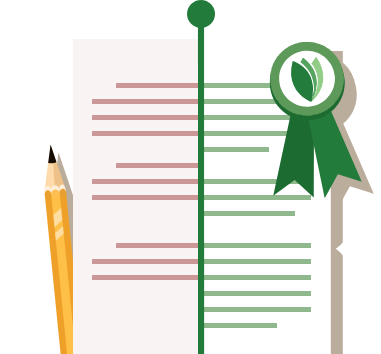New York University (NYU) boasts almost two hundreds years of history, three campuses around the world, and a nearly $6 billion endowment. NYU’s esteemed alumni include many famous actors and musicians, including Idina Menzel, Adam Sandler, and Donald Glover. Their alumni also include many well-known CEOs, such as Tom Freston (MTV Networks), Daniel Schulman (PayPal), and Cathy Minehan (Federal Reserve Bank of Boston). Hoping to become a Bobcat? Let’s dive into the NYU supplemental essay.

New York University’s 2025-2026 Prompts
We are looking for students who want to be bridge builders—students who can connect people, groups, and ideas to span divides, foster understanding, and promote collaboration within a dynamic, interconnected, and vibrant global academic community. We are eager for you to tell us how your experiences have helped you understand what qualities and efforts are needed to bridge divides so that people can better learn and work together.
Please consider one or more of the following questions in 250 words or fewer:
- Tell us about a time you encountered a perspective different from your own. What did you learn—about yourself, the other person, or the world?
- Tell us about an experience you’ve had working with others who have different backgrounds or perspectives. What challenges did your group face? Did you overcome them, and if so, how? What role did you try to play in helping people to work together, and what did you learn from your efforts?
- Tell us about someone you’ve observed who does a particularly good job helping people think or work together. How does this person set the stage for common exploration or work? How do they react when difficulties or dissensions arise?

General Tips
The NYU admissions team has only set one prompt for applicants this year. The essay must be 250 words or fewer, and in your response, you can answer multiple of the questions posed, or just one. Students do not need to write an essay response for this prompt in order to apply to NYU. Although the NYU supplemental essay is optional, we still recommend that you at least attempt to write the essay. If none of your drafts are working, or you’re too strapped for time to compose a thoughtful essay response, then you don’t have to write one.
That said, this essay provides applicants with just one more opportunity to share who they are as a person with the NYU admissions team. This is a good thing: the more you can share, the more chances you have to stand out from the crowd. Standing out from a crowd of 118,000 applicants is challenging, but your NYU supplemental essay gives you the opportunity to do so.
Write about your unique, individual experiences. Use specific, concrete (as opposed to abstract) details. Get personal where you can and vulnerable when you feel comfortable. All of these writing techniques will help your essay feel more vivid to the reader. And a vivid essay is a memorable one.
NYU Supplemental Essay Questions
We are looking for students who want to be bridge builders—students who can connect people, groups, and ideas to span divides, foster understanding, and promote collaboration within a dynamic, interconnected, and vibrant global academic community. We are eager for you to tell us how your experiences have helped you understand what qualities and efforts are needed to bridge divides so that people can better learn and work together. (250 words or fewer)
This is the opening paragraph of the NYU supplemental essay, minus the line introducing the questions the prompt proceeds to pose. In this paragraph, the NYU admissions team sets the stage for the prompt. From this paragraph, it’s clear that NYU is looking for independent thinkers who value collaboration and diversity.
Think about the times in high school when you’ve collaborated. Who did you collaborate with, and why? What were your dynamics as a group/team/partners both before and after the collaboration? In other words, how did the experience of collaborating change your relationship dynamics? If you can identify the answer to that last question, then you’re well on your way to answering this prompt effectively.
Now, let’s break down the questions the prompt proceeds to pose. Remember, you can respond to one or more of these questions.
Tell us about a time you encountered a perspective different from your own. What did you learn—about yourself, the other person, or the world? (250 words or fewer)
This question calls for a reflective narrative response. Tell a story of a specific moment when you encountered a viewpoint, belief, or approach that challenged or differed from your own. This could be a conversation with a classmate who had a different cultural background, a debate with someone who held opposing political views, or an interaction with someone whose life experiences were vastly different from yours.
Focus on the learning that occurred. What assumptions did you discover you were making? How did understanding this other perspective change your own worldview? What did you realize about the complexity of issues you thought were simple? The key is to show genuine intellectual curiosity and growth rather than just tolerance.
Tell us about an experience you’ve had working with others who have different backgrounds or perspectives. What challenges did your group face? Did you overcome them, and if so, how? What role did you try to play in helping people to work together, and what did you learn from your efforts? (250 words or fewer)
This is the most comprehensive question and could easily form the backbone of your entire essay. Start by identifying a specific collaborative experience where you worked with people whose backgrounds, perspectives, or approaches differed significantly from your own. This can be a group project, team sport, club activity, volunteer work, or workplace experience.
Be honest about the challenges your group faced! Did communication styles clash? Were there disagreements about goals or methods? Did cultural differences create misunderstandings? Acknowledging these real difficulties shows maturity and sets up your bridge-building efforts.
Then, discuss the specific actions you took to help the group work together. Perhaps you facilitated conversations to help people understand each other or worked to find a common ground between opposing viewpoints. Did you have to adapt your own communication style to better connect with others? Finally, reflect on what you learned from your efforts. What strategies worked and which ones didn’t? How do you think these experience changed your approach to collaboration? Try to elaborate on the insights you gained from working across differences.
Tell us about someone you’ve observed who does a particularly good job helping people think or work together. How does this person set the stage for common exploration or work? How do they react when difficulties or dissensions arise? (250 words or fewer)
This question allows you to demonstrate your understanding of effective bridge-building by analyzing someone else’s approach. Choose someone you’ve observed closely—a teacher, coach, family member, community leader, or peer—who excels at bringing people together.
Focus on specific behaviors and strategies this person uses. How do they create an environment where different perspectives are valued? Do they ask particular types of questions? Do they establish ground rules for discussion? How do they ensure everyone feels heard? But also consider how they handle the actual conflict or disagreement. Maybe they reframe arguments to find that common ground or use humor and empathy to help defuse the tension before further discussing solutions.
The tricky part about this prompt is connecting what you’ve observed from their approach to your own development as a bridge builder. How have you tried to incorporate their strategies into your own interactions? Since the prompt allows you to respond to more than one of these subtopics, I would consider connecting this to one of the other questions so you’re still able to let your own experiences and perspective shine! This essay response can help contextualize your own approach.
If you need help polishing up your NYU supplemental essay, check out our College Essay Review service. You can receive detailed feedback from Ivy League consultants in as little as 24 hours.





